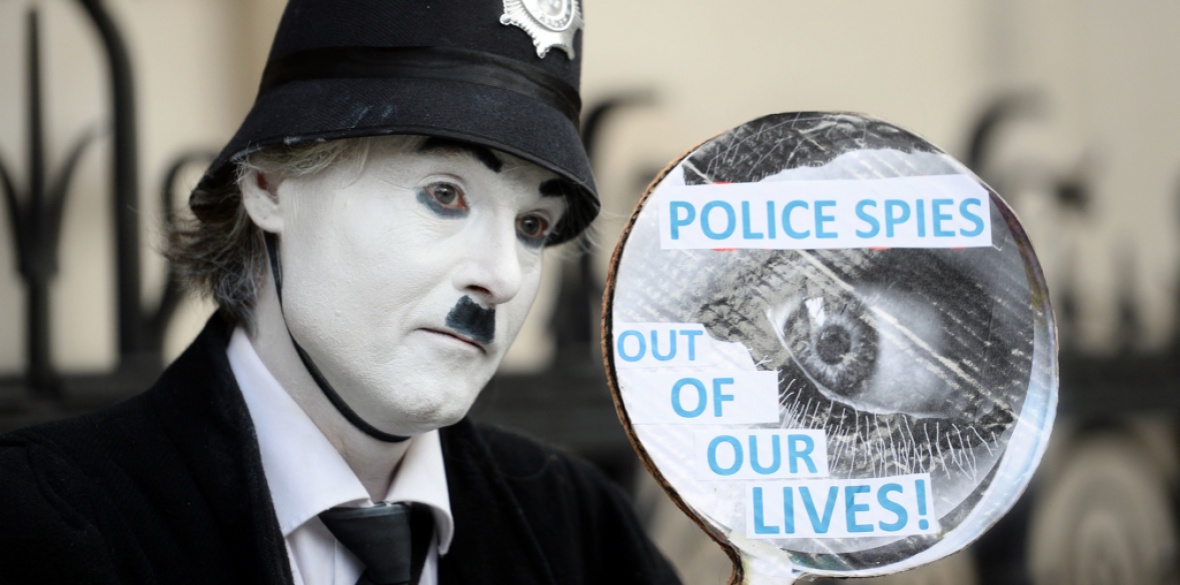This is the last article you can read this month
You can read more article this month
You can read more articles this month
Sorry your limit is up for this month
Reset on:
Please help support the Morning Star by subscribing here
by Bethany Rielly
SPYCOPS operating in a top-secret police unit originally targeted only left-wing and Irish-related groups, an inquiry into the scandal has heard.
The Undercover Policing Inquiry finally began hearing evidence today, six years after it was launched to investigate two spycop units which together infiltrated over 1,000 progressive groups over four decades.
The first stage of the inquiry, which will take place over the next three weeks, focuses on the early years of the Metropolitan Police’s Special Demonstration Squad (SDS).
The SDS was created in 1968 in response to a mass protest the previous year against the Vietnam War and continued to operate until 2008.
In his opening statement, lead council to the inquiry David Barr said: “The SDS went on to exist for four decades and to provide long-term intelligence on a wide range of targets.
“It transformed from a unit created to provide intelligence relating to a specific forthcoming event in what was then the near future to one which continually gathered intelligence about the activities and intentions of numerous groups.”
Among the central questions the inquiry will focus on in its first phase, which examines the SDS between 1968 and 1972, is whether the unit operated as “political police.”
Mr Barr said that there was no evidence to suggest that SDS officers infiltrated right-wing groups during this time; instead “the SDS’s early work was entirely targeted at the left wing or Irish-related groups.”
He said that in the unit’s early years, officers served for a number of weeks or months. This later changed substantially, he said, with the average length of deployment growing to between four and five years.
The so-called Troubles in Northern Ireland were given as a reason for the SDS to continue operating after the end of protests against the Vietnam War.
Mr Barr said that the Home Office was aware of the SDS and continued to approve funding for it.
He added that it was not “official practice” in the unit’s early years to steal the identities of deceased children, a policy later adopted to add credibility to officers’ fake profiles.
Earlier in his statement, Mr Barr revealed that the inquiry had informed a further 20 families that aspects of their relatives’ identities had been stolen by the police.
Nineteen identities belonged to deceased children while one was stolen from a living family member, the lawyer said.











